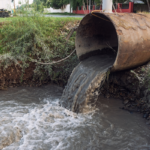Winter is right around the corner and so is icy, slippery sidewalks, parking lots, and other surfaces and questions of liability regarding slips, trips, and falls. While business managers should be taking steps to mitigate risks, such as shoveling or salting surfaces, accidents can happen. And in the event of someone slipping on an icy surface outside of your home or business, are you liable? You can be, but that depends on where you live and the circumstances.
- Do You Rent or Own Your Building? — The responsibility for snow removal is often determined by state law. Many states, such as Massachusetts and Pennsylvania, require that the owner of the property — not the tenant — is responsible for snow removal. Other states, such as Ohio and Illinois, stipulate that the occupants of the rental property are responsible for snow removal. In either case, there often are additional state and municipal about the timing of removal and other specifics. Lease agreements should clearly define snow removal responsibility to eliminate confusion.
- Natural Accumulation — Some states, such as Ohio and Illinois, enforce a “natural accumulation” law where property owners are not held liable for the risks of snow and ice so long as they didn’t exacerbate the danger. They assume that snow and ice is a part of daily life and everyone is responsible for protecting themselves. Ironically, clearing the snow can be considered altering the natural accumulation, which can result in a lawsuit. Bottom line: clear your surfaces.
- When Did the Accident Occur? — During an active snowstorm, it is unreasonable to expect property owners and managers to try to keep up with a blizzard and keep walkways clear. Generally, if someone slips and falls during an active snowfall, liability is not attached. However, municipalities often specify the amount of time you have before needing to clear the snow, in addition to width requirements and more. For example, Boston gives a three-hour grace period before snow must be cleared.
- Responsibility Extends Beyond Property Lines — While it may seem counterintuitive, in some states like Connecticut, you can be held liable for the public sidewalks in front of your property. If you do not keep them accumulation free, injured parties are able to bring a suit against you.
The Bottom Line
There is no simple answer to the question of liability. Laws vary greatly from state to state, and, in some cases, from town to town. It is in your best interest to keep paths and walkways clear wherever you may live. And in addition to exercising caution, be sure to have a good insurance policy in the event of a lawsuit.




